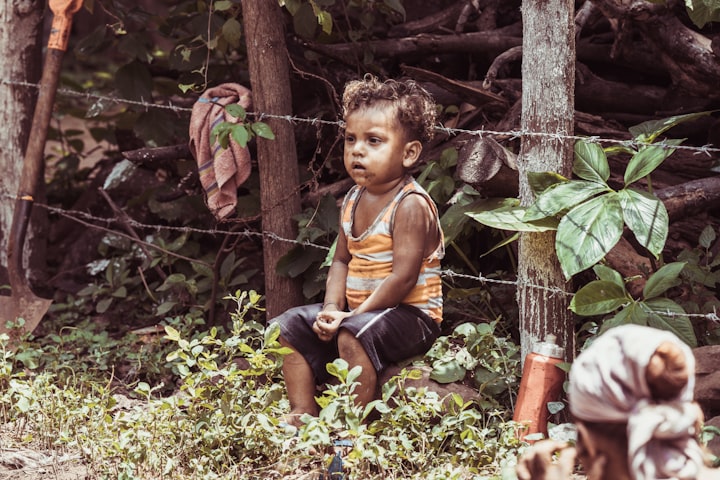Poverty and Pakistan
How to overcome poverty in Pakistan?

Overcoming poverty in Pakistan requires a comprehensive and multi-faceted approach involving various stakeholders, including the government, non-governmental organizations (NGOs), and the community. Here are some strategies that can contribute to reducing poverty in Pakistan:
Economic reforms: Implementing economic policies that promote sustainable and inclusive growth is crucial. This includes investing in infrastructure development, encouraging foreign direct investment, and fostering entrepreneurship and innovation.
Education and skill development: Enhancing access to quality education is essential for breaking the cycle of poverty. Government initiatives should focus on improving school infrastructure, providing vocational training programs, and promoting skill development to equip individuals with the tools they need to secure better job opportunities.
Social safety nets: Establishing effective social safety nets is vital to protect vulnerable populations from falling into poverty and provide them with necessary support. This can include targeted cash transfer programs, subsidized healthcare, and food assistance programs.
Agricultural reforms: Agriculture is a significant sector in Pakistan, and improving agricultural practices can have a positive impact on poverty reduction. Enhancing access to credit, providing technical assistance to farmers, promoting modern farming techniques, and investing in irrigation systems can help boost agricultural productivity and income.
Women empowerment: Empowering women is crucial for poverty reduction. Efforts should focus on promoting gender equality, improving access to education and healthcare for women, providing skill development opportunities, and ensuring their active participation in decision-making processes.
Access to basic services: Ensuring access to basic services such as clean water, sanitation facilities, healthcare, and electricity is essential. Infrastructure development programs should prioritize the provision of these services to underserved areas and marginalized communities.
Job creation and entrepreneurship: Encouraging job creation and promoting entrepreneurship can help alleviate poverty. This can be achieved through initiatives like providing financial support and training to small and medium-sized enterprises, facilitating access to credit, and creating a favorable business environment.
Good governance and anti-corruption measures: Promoting transparency, accountability, and good governance practices is crucial for effective poverty reduction. Anti-corruption measures should be strengthened, and public resources should be allocated efficiently and effectively to benefit the poor.
Access to financial services: Expanding access to formal financial services, such as microfinance and banking, can help individuals and small businesses access credit, save money, and build assets.
Social awareness and community engagement: Raising awareness about the causes and consequences of poverty and fostering community engagement is essential. This can involve promoting social cohesion, encouraging volunteerism, and facilitating community-led initiatives for poverty reduction.
It's important to note that these strategies should be implemented in a coordinated and sustainable manner, with a long-term vision. Additionally, collaboration between the government, NGOs, international organizations, and the private sector is crucial for the success of poverty reduction efforts in Pakistan.
Pakistan has the potential to achieve growth through various strategies and initiatives. Here are some areas that can contribute to Pakistan's growth:
Economic reforms: Implementing comprehensive economic reforms can enhance Pakistan's business environment, attract foreign investment, and promote entrepreneurship. This includes simplifying regulations, reducing bureaucracy, and improving the ease of doing business.
Infrastructure development: Investing in infrastructure projects, such as transportation networks, energy facilities, and digital connectivity, can stimulate economic growth. Developing efficient transport systems and expanding access to reliable energy can boost productivity and attract industries.
Human capital development: Prioritizing education and skill development is crucial for long-term growth. Investing in quality education at all levels, vocational training programs, and promoting research and innovation can enhance the capabilities of the workforce, making Pakistan more competitive globally.
Agriculture modernization: Agriculture is a significant sector in Pakistan. Modernizing agricultural practices, improving irrigation systems, introducing advanced technologies, and providing farmers with access to credit and markets can increase agricultural productivity and reduce rural poverty.
Export promotion: Diversifying and expanding export markets can enhance Pakistan's economic growth. Encouraging industries to produce value-added products, providing export incentives, and improving trade infrastructure can boost exports and reduce the trade deficit.
Energy sector reforms: Addressing Pakistan's energy crisis is crucial for sustained economic growth. Enhancing energy efficiency, increasing renewable energy sources, and attracting private investment in the energy sector can improve energy availability and affordability.
Good governance and institutional reforms: Strengthening institutions, improving transparency, and fighting corruption are essential for fostering a conducive environment for growth. Implementing effective governance practices and ensuring the rule of law can attract investment and create a level playing field for businesses.
Regional connectivity: Leveraging Pakistan's strategic location, fostering regional economic integration, and improving trade relations with neighboring countries can open up new opportunities for growth. Enhancing connectivity through infrastructure projects like the China-Pakistan Economic Corridor (CPEC) can boost trade and investment.
Tourism development: Pakistan possesses diverse natural landscapes and cultural heritage sites. Developing tourism infrastructure, promoting responsible tourism, and ensuring security can attract international tourists, generating revenue and employment opportunities.
Social development: Prioritizing social development, including healthcare, poverty alleviation, and social safety nets, can improve the overall well-being of the population. Investing in healthcare infrastructure, expanding health coverage, and targeted poverty reduction programs can reduce inequality and contribute to inclusive growth.
It's important to note that achieving sustained and inclusive growth requires consistent implementation of these strategies, continuous evaluation, and adaptation to changing circumstances. It will require collaboration between the government, private sector, civil society, and international partners to drive Pakistan's growth trajectory.
About the Creator
Adil Shabbir
Humble person with deep thoughts.
Just describing my emotions in words.
Reader insights
Good effort
You have potential. Keep practicing and don’t give up!
Top insight
Expert insights and opinions
Arguments were carefully researched and presented






Comments
There are no comments for this story
Be the first to respond and start the conversation.